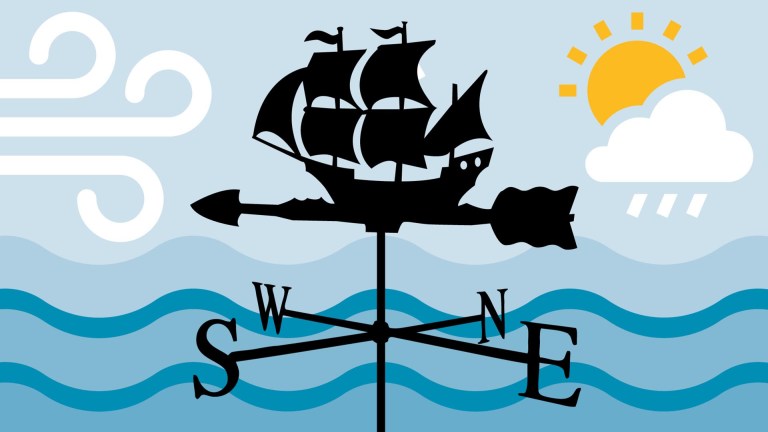Should you be sat in the front of a comedy club and be asked “Where are you from?” by the comic, you will probably expect to reply and briefly be berated for coming from a rubbish place, a posh place or a place rife with either incest or livestock fondling. Should you be asked by Mark Steel, you may well then receive a warm, witty and highly informative 30-minute lecture on the statues, statistics, infrastructure, history and drinking habits of your hometown.
Mark Steel’s in Town has just finished its ninth series. He has now visited 55 destinations. Its longevity is tribute to his relentlessly energetic curiosity and sharp eye for human absurdity. Series One began with him playing Skipton’s cattle market that is “hosed down to become the town’s theatre” and the most recent series concluded with him celebrating the blasé corruption of Malta in the hope that the assassination this would lead to would at least mean he would get his own island shrine.
It is an astounding achievement that Steel comes up with so much fresh and specific material for so many series.
Steel has a warm way of telling people that the world and its occupants are preposterous and his audience welcome the news of their absurdity. In Malta, as well as the passport corruption that has Russian moneymen supposedly living three to a garage, he highlights the pointless cannon bursts of celebration, the sudden appearances of marching bands and the claustrophobic planning permissions: “You could have the Taj Mahal and they’d say ‘You could balance a nightclub on top of that.’” Standing outside a bank, the quiet was suddenly smashed to smithereens by a marching band who, to their credit, “were all playing in time, but all playing a different song”.
When many comics spend a year struggling to come up with a satisfying new hour of material, it is an astounding achievement that Steel comes up with so much fresh and specific material for so many series. The Radio 4 listener gets the edit, but each location gets a full-length live show on their architectural eccentricities and local political peculiarities. Steel treads where JB Priestley’s English Journey and John Hillaby’s Journey Through Britain have been in the century before, building up an almanac of British thoughts and culture, finding the local divisions and national unities in each Royston Vasey that he dissects.
There is an affection in the probing of the softer divisions that are laced across these islands, an affection and curiosity that is so obviously lacking in the professional patriots determined to tear up any camaraderie that stands in the way of profit or power. There are positive possibilities from laughing at how absurd we can be rather than tirades about how right we are. The joy with which Mark’s opening line to the people of the Forest of Dean: “Thank you very much lovely, but slightly peculiar, people” is received typifies this. He then retells his first conversation in the area, “I went to the Dean Heritage Centre and a bloke came up to me and said ‘I live off roadkill’, and then explains that he had recently come across a slain stag and returned with a bone saw to cut off its antlers and sell them on eBay.”
If you are planning a summer holiday in Britain this year, you may do better to check out In Town’s back catalogue on the BBC Sounds website rather than use TripAdvisor. I’m off to Ottery St Mary.









